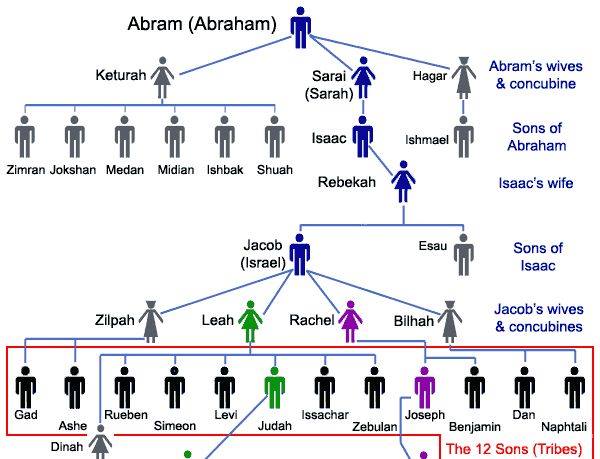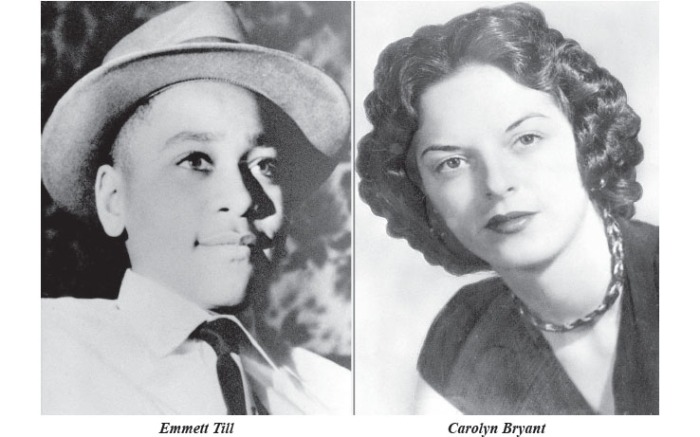A sermon preached at Southminster Presbyterian Church in Boise, Idaho
Sept 23, 2018
Genesis 39:1-23
Last week, Julie preached a great sermon about Abraham. It’s such an important reminder for us to remember our past as we seek to navigate our future. Who were we then? Who are we today? How far back do we have to go to remember that we belong to each other?

Julie preached about Abraham. He and his wife Sarah had a son named Isaac, who had sons named Jacob and Esau. Today, our story in Genesis jumps ahead a few chapters to an often un-preached story of Joseph, who is Jacob’s second youngest son, and the first-born son of Jacob’s favorite wife, making him Jacob’s favorite son.
Joseph is also a dreamer. And his dreams get him in trouble, because he dreams that his older brothers will bow down and honor him, which is not a dream he ever should have reported to the older brothers. What happens to the favorite, snotty younger brother when Jacob sends him to “see about the shalom your brothers?” (37:14)
First, they want to kill him. Naturally. They are brothers, after all. But then one of the brothers considers that a bit of an over reaction and they decide to leave him in a pit to die on his own. And remember—people look to scripture to support “family values”.
Eventually, they sell Joseph to traders, dip his coat in goat’s blood and take it home to dad and say, “gee, dad, we don’t know what happened to your favorite child?”
Filial love at its finest.
That was the first time Joseph’s coat gets him in trouble.
In the first coat incident, or wardrobe malfunction, Joseph ends up a victim of human trafficking, just as many men, women, and children are human trafficking victims today. (If you need help, the hotline is (888) 373-7888)
Joseph was sold to an Egyptian named Potiphar, captain of Pharaoh’s guard. Today’s story will the second time Joseph’s coat causes him trouble, as his coat is left behind when he flees Mrs. Potiphar, becoming evidence against him. In both cases, his coat is used as false evidence against him.
The narrator reports that Joseph does well. Everything prospered in his hands because “the Lord was with him” (v. 3).
No matter how optimistically the narrator wants to tell the story, in truth Joseph remains a slave. He’s property of Potiphar. There’s a big power imbalance in this narrative. Joseph is not in control of his destiny. Within the narrow confines of his slavery, he can do the best he can do, but at the end of the day, he is still Potiphar’s slave. There are also cultural power imbalances. Joseph is referred to as not just a slave but as “the Hebrew slave” (v 17), suggesting an additional level of cultural/racial discrimination and imbalance Joseph is facing.
I don’t know what Mrs. Potiphar was up to. As Simon and Garfunkel said, We’d like to know a little bit about you for our files. We’d like to help you learn to help yourself.
Was she just abusing the power and privilege she had over a Hebrew slave because she could?
Was she drawn to Joseph’s success, the way Potiphar himself seemed to be?
Did she think if she slept with Joseph that her life would prosper in his hands, as everything else seemed to?
Was she trying to deflect her own shame for her behavior onto someone else, distracting people away from her own behavior, and pinning it on Joseph and his garment—the seemingly perfect piece of evidence?
Was there an age difference between them, like Anne Bancroft and Dustin Hoffman in The Graduate?

In truth, there was only a six year age difference between Hoffman and Bancroft. For shame, Hollywood!
In this era of “Me Too” movement, and the recent issues around the nomination of Brett Kavanaugh to the US Supreme Court, it may be tempting to ask Joseph—
Why didn’t you report the assault when it happened?
Why didn’t you demand an FBI investigation then?
Why were you wearing that coat in the first place, when you have a history of dressing in ways that get you in trouble?
These allegations, Joseph, will ruin the reputation of Potiphar’s wife. We need to think of her future.
I promise I didn’t pick this text because of what is going on in the news this week. (Trust me, I didn’t want this text). But there certainly are resonances here, and reminders that, despite the important contextual differences, scripture speaks not just to history, but to our lives now. And this isn’t the only story in scripture where sexual violence or misconduct drives the narrative. Dina, Bathsheba, David’s daughter Tamar—the list is long. And this is a story that is real for many people in this room, and in our families, and in our community. When we read scripture, and when we read the national news, may we remember the ways these stories intersect in each other’s lives.
The story of Emmett Till may be more instructive in the story of Joseph and Mrs. Potiphar. “Emmett Till was born in 1941 in Chicago and grew up in a middle-class black neighborhood. Till was visiting relatives in Money, Mississippi, in 1955 when the fourteen-year-old was accused of whistling at Carolyn Bryant, a white woman who was a cashier at a grocery store. Four days later, Bryant’s husband Roy and his half-brother JW Milam kidnapped Till, beat him and shot him in the head.
The men were tried for murder, but an all-white, male jury acquitted them. Only a few months later, in January 1956, Bryant and Milam admitted to committing the crime. Protected by double jeopardy laws, they told the whole story of how they kidnapped and killed Emmett Till to Look magazine for $4,000.”
Joseph and Mrs. Potiphar, or Emmett Till and Mrs. Bryant, both remind us of the way people mis-use power and privilege, even when we don’t even know we have it. I suspect neither Carolyn Bryant nor Mrs. Potiphar would have described themselves as people with power in their societies. Then, as now, women’s space in power hierarchies is not usually at the top. Yet, they managed to find people who had less power than they did. And they wielded their power with tragic consequences.

Joseph is a character in the Book of Genesis who has God’s favor and blessing with him throughout his life. And is a corrective reminder when anyone says our faith in God will bring us an easy, uniformly happy, untouched by trauma, kind of life. The variables in our lives will change. Trauma may still happen to us. God’s faithfulness will not, however, change. Whatever we go through, God never leaves us. No matter how alone we might feel, God is there.
When the Mrs. Potiphars of the world show up with their injustice and lies, it can seem that we don’t have any options, that there isn’t anything we can do. When we watch people lie and utter all manner of falsehoods, we can speak the truth as best we can. And it may not be enough in the moment. But the story of Joseph shows the truth is enough in the end.
The one thing Joseph had control over throughout this story was his integrity. His word. We can’t manage all of life’s events. We can’t manage other people’s opinions of us. We can maintain our integrity.
When we read these stories in scripture, they are completed, finished. We know the innocent party and the guilty party because the jury has already reported back and the narrator is giving us the final edit. In our lives, it often isn’t so simple. These incidences often don’t involve witnesses.
And so it comes down to our word.
And it comes down to the way our culture values and devalues the words of different people. For Joseph, he was a slave, whose words weren’t valued. Mrs. Potiphar, in that situation, held the power, and her words carried the day.
Joseph’s word, however, held the truth.
While it may not have been enough to keep him from going to prison in the moment, it will eventually be what gets him out of jail. And, more than that, by maintaining his integrity the whole way through the encounter with Mrs. Potiphar, Joseph remains someone whose word is never compromised, and whose trust in God remains constant.
Are we valuing the words, the stories, that people are carrying?
The poet Maya Angelou once wrote, ”There is no agony like bearing an untold story inside of you.” She knew of that from personal experience. After being a victim of sexual violence at a young age, she became mute, and didn’t speak for 5 years. She went on to become a poet, professor, activist—among many areas where she found professional success.
There are too many people bearing untold stories inside of them right now. And the national news, I fear, is traumatic and triggering for many people. So I hope we will be kind to one another, recognizing we may not know the stories people are bearing in their bodies. And give people space to speak what needs to be spoken. And also give people space to not speak what they can’t quite voice. They don’t owe us their stories, so when they share them, may we believe the stories that well up from a deep place of truth.
Angelou also once said, “You may not control all the events that happen to you, but you can decide not to be reduced by them.”
One of her most famous poems is Still I Rise, and it seems apt for this story of Joseph. Her poem begins:
You may write me down in history
With your bitter, twisted lies,
You may trod me in the very dirt
But still, like dust, I’ll rise.
I’ve had the privilege this week, and throughout my ministry, to hear stories from people of how they have risen out of their painful experiences. It is one of the sacred gifts I get as pastor.
I invite you to read the rest of the Joseph narrative in the later chapters of Genesis this week, to see how Joseph, too, will rise from being falsely imprisoned, how he will rise from having his character maligned. And wherever we find ourselves in this story, may we too, hold fast to truth and feel the presence of God as we navigate the snares of this world. The truth will set us free, but it may make us miserable before it’s done with us. That’s why I’m so grateful to not have to do any of this work alone. Thank you for the community you make here, so people can be honest about their story.



Thank you , Marci. It was a heck of a week indeed.
LikeLiked by 1 person
And, sadly, this one is not looking any better. sigh.
LikeLiked by 1 person
Thank you for the community you make here… Laura
On Sun, Sep 23, 2018 at 4:19 PM Glass Overflowing wrote:
> marciglass posted: “A sermon preached at Southminster Presbyterian Church > in Boise, Idaho Sept 23, 2018 Genesis 39:1-23 Last week, Julie preached a > great sermon about Abraham. It’s such an important reminder for us to > remember our past as we seek to navigate our future. W” >
LikeLiked by 1 person
Thank you Laura. I miss you!
LikeLike
This is beautiful and covers well so many difficult things. Thank you
LikeLike
Pingback: ’cause I need freedom too | Glass Overflowing
“ invite you to read the rest of the Joseph narrative in the later chapters of Genesis this week, to see how Joseph, too, will rise from being falsely imprisoned, how he will rise from having his character maligned. And wherever we find ourselves in this story, may we too, hold fast to truth and feel the presence of God as we navigate the snares of this world. The truth will set us free, but it may make us miserable before it’s done with us. That’s why I’m so grateful to not have to do any of this work alone. Thank you for the community you make here, so people can be honest about their story.” Sounds like a beautiful community you have there.
LikeLike